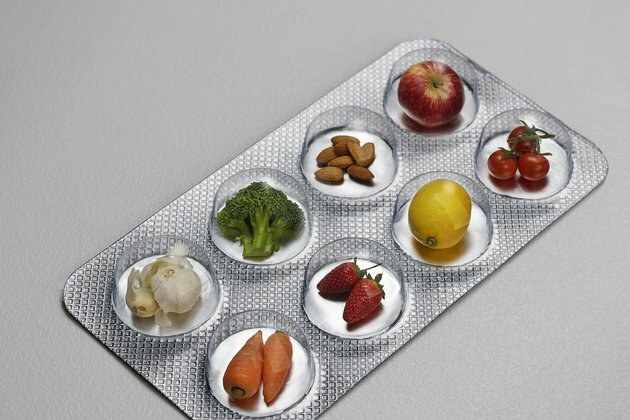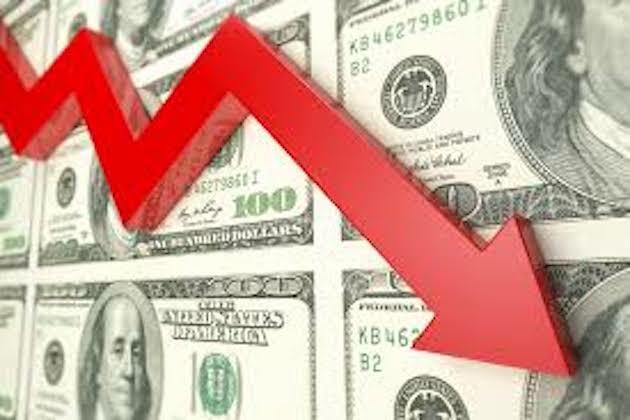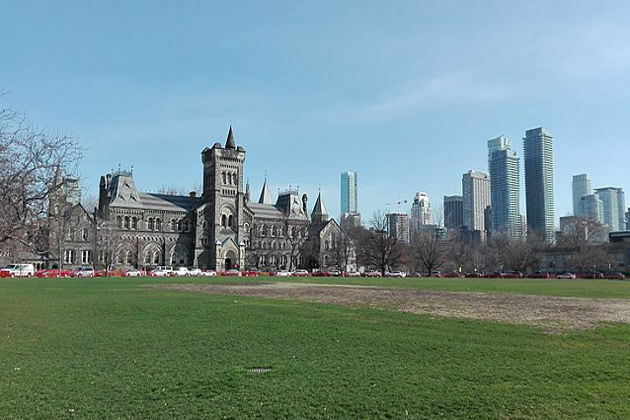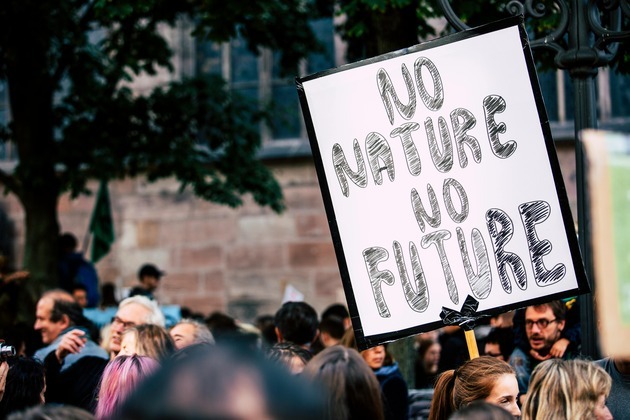How can you define a 'drug'? Nobody really knows
The Conversation
20 Nov 2023, 12:08 GMT+10

What's a medical drug? Ask someone on the street and they're likely to tell you it's the kind of thing you take when you're unwell.
This understanding is wrong, as we will see. But after a thorough investigation, my colleagues and I found no other potential definitions are any better.
Despite their centrality to medicine, we have no idea what medical drugs are. We can't even tell the difference between drugs and food, let alone drugs and so-called "natural" alternatives.
A Goldilocks definition
In a recent article in the Journal of Medicine and Philosophy, my colleagues (Sara Linton, a pharmacist, and Maureen O'Malley, a philosopher of biology) and I tried to nail down a viable definition of medical drugs.
A viable definition should be broad enough to include everything classified as a drug. To get a sense of this "everything", we used the drug bank compiled by the Canadian Institutes for Health Research, which lists more than 16,000 substances.
A definition should also be narrow enough to exclude substances not typically considered drugs. Take food, for example. Eating a sandwich is usually never thought of as taking a drug.
In short, a viable definition of what drugs are should occupy a "Goldilocks" zone between these two demands: big enough to include all drugs, small enough to exclude everything else.
Based on an initial study of pharmacology textbooks, we found three broad ways to define drugs: in terms of what they are, how they work and what they're used for.
Unfortunately, none of these options fall within the Goldilocks zone.
Are drugs specific chemicals?
If all drugs were a particular type of chemical, then defining drugs would be easy. But this idea is hopeless: there is nothing, chemically speaking, all drugs have in common.
It is also tempting to think drugs are "artificial" chemicals, made in a lab, whereas "natural" supplements come from nature, and that's the difference.
But many drugs are "natural" in this sense. Aspirin, for instance, is derived from willow bark.
This has immediate implications for so-called "natural" supplements, such as fish oil.
If "drugs" are chemically indistinguishable from "natural" supplements, supplements should not be considered a "safe" alternative. Supplements are no less, and no more, safe than many drugs.
Do drugs perform a specific function?
Perhaps drugs can be defined in terms of what they do. This idea initially seems promising, as many drugs work by binding to receptor molecules in the body.
Think of a lock and key: the receptor molecule is the lock, and the drug is the key that opens it.
The discovery of receptor molecules is significant. For some, it is the "big idea" of the science of pharmacology.
But this definition of medical drugs is also hopeless. Many drugs don't bind to receptors. Antacids, for instance, work simply by changing the level of acidity (pH) in a person's body.
Read more: Explainer: what is the placebo effect and are doctors allowed to prescribe them?
Many placebos also bind to receptors. Placebos are often contrasted with drugs, but defining drugs as "things that bind to receptor molecules" would include many placebos in the definition. So this definition won't work either.
Is there a way to define placebos that clearly distinguishes them from drugs? This is not obvious, since defining placebos is also quite hard.
For instance, one might think placebos are substances that have no therapeutic effects. But placebos can have therapeutic effects (the so-called placebo effect), so this definition won't work. A number of other definitions face similar problems.
Our research paves the way toward an explanation of why it is so hard to define placebos. To properly define placebos, we need to differentiate them from drugs, which we can't do without a definition of what drugs are.
Drugs make me better
This brings us back to wellness. On this view, a medical drug is just any chemical substance used in medical treatment.
This does better: it captures the full range of substances used as drugs in medical contexts.
But now there is absolutely no hope of keeping food and nutrients out.
Read more: Poison or cure? Traditional Chinese medicine shows that context can make all the difference
Consider, for example, total parenteral nutrition. This is a chemical infusion given to people who have trouble absorbing nutrients in the normal way.
Total parenteral nutrition is used in medical treatment. But what it does for your body isn't really different from what a good sandwich does.
Any treatment-based account of drugs inevitably wipes out the contrast with food.
So what?
In our day-to-day lives, we make choices that rely on an implicit understanding of what drugs are.
For instance, we take paracetamol because it is a drug. Many of us may also take fish oil precisely because we believe it isn't a drug.
Without an account of what drugs are, we risk making serious mistakes.
We might take substances we think are "inert" (placebos) because they are "natural" (like fish oil) when in fact they are active drugs.
Similarly, all legal regulation of medical drugs assumes we already know what a drug is.
But we don't: our understanding is clearly evolving. This means regulation must also continually change. Substantial resources must therefore be devoted to reworking legislation as we continue to rethink what medical drugs are, as the recent reclassification of MDMA and psilocybin as medicines in Australia demonstrates.
Then there's food. Food is not administered or regulated like a drug in a hospital, with the exception of total parenteral nutrition and similar substances.
But if doctors use food like a drug to contribute to patient wellbeing, then perhaps it should be subject to the same standards.
This may require radically rethinking the way meals are provided in a hospital. Perhaps meals should be administered, and regulated, with the same care as drugs.
Hospital lunches might never be the same. But that could be a good thing.
Author: Sam Baron - Associate Professor, Philosophy of Science, Australian Catholic University 
 Share
Share
 Tweet
Tweet
 Share
Share
 Flip
Flip
 Email
Email
Watch latest videos
Subscribe and Follow
Get a daily dose of Houston Mirror news through our daily email, its complimentary and keeps you fully up to date with world and business news as well.
News RELEASES
Publish news of your business, community or sports group, personnel appointments, major event and more by submitting a news release to Houston Mirror.
More InformationBusiness
SectionWall Street extends rally, Standard and Poor's 500 hits new high
NEW YORK, New York - U.S. stock markets closed firmly in positive territory to start the week Monday, with the S&P 500 and Dow Jones...
Canadian tax on US tech giants dropped after Trump fury
WASHINGTON, D.C.: On Friday, President Donald Trump announced that he was halting trade discussions with Canada due to its decision...
Trump-backed crypto project gets $100 million boost from UAE fund
LONDON, U.K.: A little-known investment fund based in the United Arab Emirates has emerged as the most prominent public backer of U.S....
DIY weight-loss drug trend surges amid high prices, low access
SAN FRANCISCO, California: Across the U.S., a growing number of people are taking obesity treatment into their own hands — literally....
Apple allows outside payment links under EU pressure
SAN FRANCISCO, California: Under pressure from European regulators, Apple has revamped its App Store policies in the EU, introducing...
Euro, pound surge as U.S. rate cut odds grow after Powell hint
NEW YORK CITY, New York: The U.S. dollar tumbled this week, hitting its lowest levels since 2021 against the euro, British pound, and...
International
SectionFox faces $787 million lawsuit from Newsom over Trump phone call
DOVER, Delaware: California Governor Gavin Newsom has taken legal aim at Fox News, accusing the network of deliberately distorting...
DeepSeek faces app store ban in Germany over data transfer fears
FRANKFURT, Germany: Germany has become the latest country to challenge Chinese AI firm DeepSeek over its data practices, as pressure...
Canadian option offered to Harvard graduates facing US visa issues
TORONTO, Canada: Harvard University and the University of Toronto have created a backup plan to ensure Harvard graduate students continue...
Israel should act fast on new peace deals, Netanyahu says
JERUSALEM, Israel: Israeli Prime Minister Benjamin Netanyahu says that Israel's success in the war with Iran could open the door to...
UN offer rejected in Dreamliner crash investigation
NEW DELHI, India: India has decided not to allow a United Nations (UN) investigator to join the investigation into the recent Air India...
UN climate agency gets 10 percent boost amid global budget cuts
BONN, Germany: Despite widespread belt-tightening across the United Nations, nearly 200 countries agreed this week to increase the...













